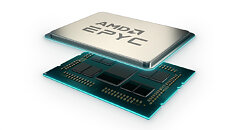Quobly Announces Key Milestone for Fault-tolerant Quantum Computing
Quobly, a leading French quantum computing startup, has reported that FD-SOI technology can serve as a scalable platform for commercial quantum computing, leveraging traditional semiconductor manufacturing fabs and CEA-Leti's R&D pilot line.
The semiconductor industry has played a pivotal role in enabling classical computers to scale at cost; it has the same transformative potential for quantum computers, making them commercially scalable and cost competitive. Silicon spin qubits are excellent for achieving fault-tolerant, large-scale quantum computing, registering clock speeds in the µsec range, fidelity above 99% for one and two-qubit gate operations and incomparably small unit cell sizes (in the hundredths of 100 nm²).
The semiconductor industry has played a pivotal role in enabling classical computers to scale at cost; it has the same transformative potential for quantum computers, making them commercially scalable and cost competitive. Silicon spin qubits are excellent for achieving fault-tolerant, large-scale quantum computing, registering clock speeds in the µsec range, fidelity above 99% for one and two-qubit gate operations and incomparably small unit cell sizes (in the hundredths of 100 nm²).


































